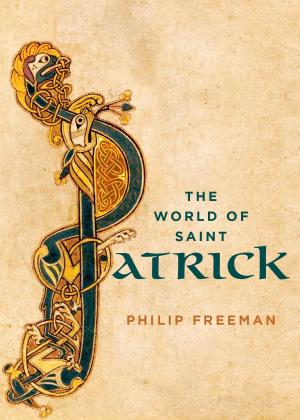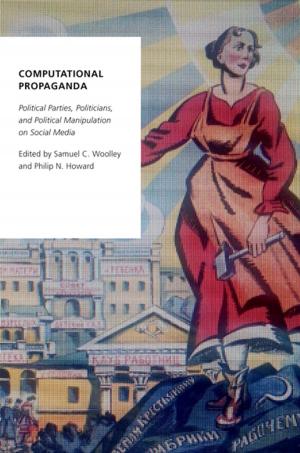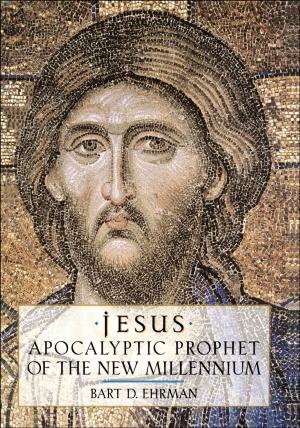Diaspora: A Very Short Introduction
Nonfiction, Social & Cultural Studies, Social Science, Human Geography, Science & Nature, Science, History| Author: | Kevin Kenny | ISBN: | 9780199858606 |
| Publisher: | Oxford University Press | Publication: | June 17, 2013 |
| Imprint: | Oxford University Press | Language: | English |
| Author: | Kevin Kenny |
| ISBN: | 9780199858606 |
| Publisher: | Oxford University Press |
| Publication: | June 17, 2013 |
| Imprint: | Oxford University Press |
| Language: | English |
What does diaspora mean? Until quite recently, the word had a specific and restricted meaning, referring principally to the dispersal and exile of the Jews. But since the 1960s, the term diaspora has proliferated to a remarkable extent, to the point where it is now applied to migrants of almost every kind. This Very Short Introduction explains where the concept of diaspora came from, how its meaning changed over time, why its usage has expanded so dramatically in recent years, and how it can both clarify and distort the nature of migration. Kevin Kenny highlights the strength of diaspora as a mode of explanation, focusing on three key elements--movement, connectivity, and return--and illustrating his argument with examples drawn from Jewish, Armenian, African, Irish, and Asian diasporas. He shows that diaspora is not simply a synonym for the movement of people. Its explanatory power is greatest when people believe that their departure was forced rather than voluntary. Thus diaspora would not really explain most of the Irish migration to America, but it does shed light on the migration compelled by the Great Famine. Kenny also describes how migrants and their descendants develop diasporic cultures abroad--regardless of the form their migration takes--based on their connections with a homeland, real or imagined, and with people of common origin in other parts of the world. Finally, most conceptions of diaspora feature the dream of a return to a homeland, even when this yearning does not involve an actual physical relocation. About the Series: Oxford's Very Short Introductions series offers concise and original introductions to a wide range of subjects--from Islam to Sociology, Politics to Classics, Literary Theory to History, and Archaeology to the Bible. Not simply a textbook of definitions, each volume in this series provides trenchant and provocative--yet always balanced and complete--discussions of the central issues in a given discipline or field. Every Very Short Introduction gives a readable evolution of the subject in question, demonstrating how the subject has developed and how it has influenced society. Eventually, the series will encompass every major academic discipline, offering all students an accessible and abundant reference library. Whatever the area of study that one deems important or appealing, whatever the topic that fascinates the general reader, the Very Short Introductions series has a handy and affordable guide that will likely prove indispensable.
What does diaspora mean? Until quite recently, the word had a specific and restricted meaning, referring principally to the dispersal and exile of the Jews. But since the 1960s, the term diaspora has proliferated to a remarkable extent, to the point where it is now applied to migrants of almost every kind. This Very Short Introduction explains where the concept of diaspora came from, how its meaning changed over time, why its usage has expanded so dramatically in recent years, and how it can both clarify and distort the nature of migration. Kevin Kenny highlights the strength of diaspora as a mode of explanation, focusing on three key elements--movement, connectivity, and return--and illustrating his argument with examples drawn from Jewish, Armenian, African, Irish, and Asian diasporas. He shows that diaspora is not simply a synonym for the movement of people. Its explanatory power is greatest when people believe that their departure was forced rather than voluntary. Thus diaspora would not really explain most of the Irish migration to America, but it does shed light on the migration compelled by the Great Famine. Kenny also describes how migrants and their descendants develop diasporic cultures abroad--regardless of the form their migration takes--based on their connections with a homeland, real or imagined, and with people of common origin in other parts of the world. Finally, most conceptions of diaspora feature the dream of a return to a homeland, even when this yearning does not involve an actual physical relocation. About the Series: Oxford's Very Short Introductions series offers concise and original introductions to a wide range of subjects--from Islam to Sociology, Politics to Classics, Literary Theory to History, and Archaeology to the Bible. Not simply a textbook of definitions, each volume in this series provides trenchant and provocative--yet always balanced and complete--discussions of the central issues in a given discipline or field. Every Very Short Introduction gives a readable evolution of the subject in question, demonstrating how the subject has developed and how it has influenced society. Eventually, the series will encompass every major academic discipline, offering all students an accessible and abundant reference library. Whatever the area of study that one deems important or appealing, whatever the topic that fascinates the general reader, the Very Short Introductions series has a handy and affordable guide that will likely prove indispensable.















